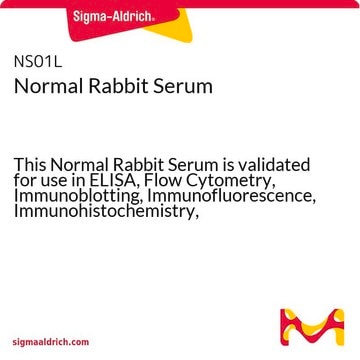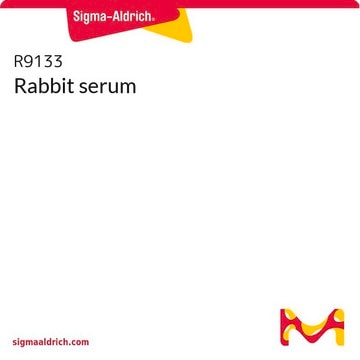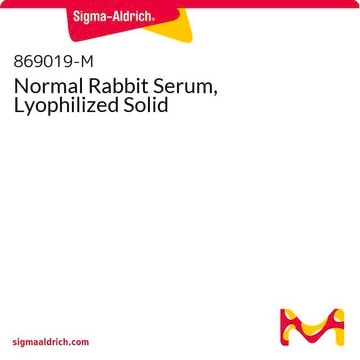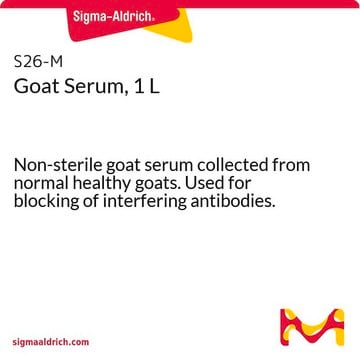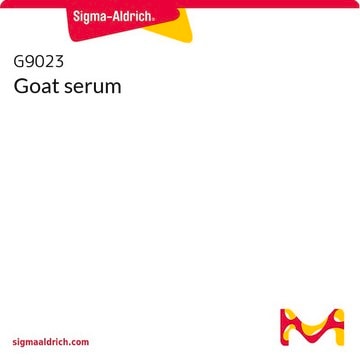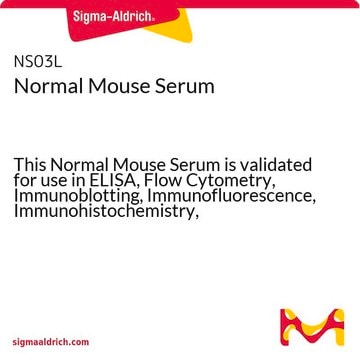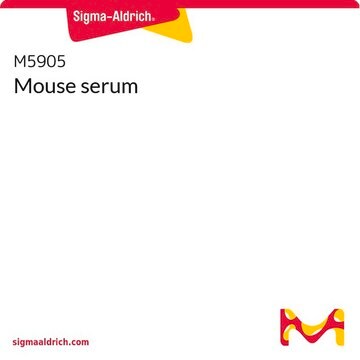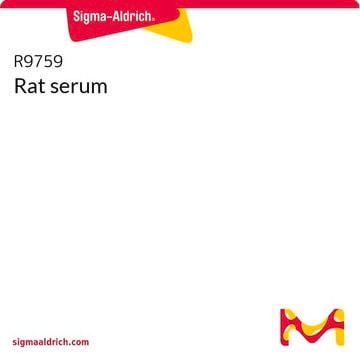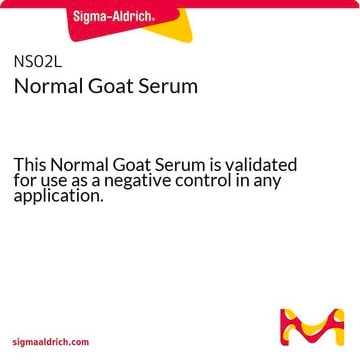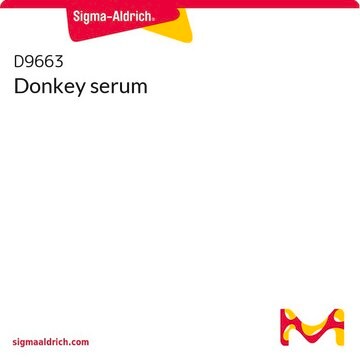Recommended Products
biological source
rabbit
antibody form
serum
manufacturer/tradename
Chemicon®
technique(s)
blocking: suitable (interfering antibodies)
General description
Normal rabbit serum collected from healthy normal rabbits.
Serum Preparation: Blood is collected from New Sealand White or California White rabbits and allowed to clot at room temperature. The preparation is rimmed and then centrifuged to separate the clotted material from the serum. Supernatant is retained and pooled.
Characterisitcs/Measurements Recorded:
Appearance - Yellow to red liquid
pH - 7.5 to 7.9
Total Protein - 5.5 to 6.5 gm
Hemoglobin - 20 to 25 mg/dL
Serum Preparation: Blood is collected from New Sealand White or California White rabbits and allowed to clot at room temperature. The preparation is rimmed and then centrifuged to separate the clotted material from the serum. Supernatant is retained and pooled.
Characterisitcs/Measurements Recorded:
Appearance - Yellow to red liquid
pH - 7.5 to 7.9
Total Protein - 5.5 to 6.5 gm
Hemoglobin - 20 to 25 mg/dL
Physical form
Nonsterile liquid. Contains no preservatives. Filtered through a .45 micron membrane filter.
Storage and Stability
Store frozen at -20°C in undiluted aliquots for up to 12 months. Avoid repeated freeze/thaw cycles.
Legal Information
CHEMICON is a registered trademark of Merck KGaA, Darmstadt, Germany
Disclaimer
Unless otherwise stated in our catalog or other company documentation accompanying the product(s), our products are intended for research use only and are not to be used for any other purpose, which includes but is not limited to, unauthorized commercial uses, in vitro diagnostic uses, ex vivo or in vivo therapeutic uses or any type of consumption or application to humans or animals.
Storage Class Code
10 - Combustible liquids
WGK
WGK 1
Flash Point(F)
Not applicable
Flash Point(C)
Not applicable
Certificates of Analysis (COA)
Search for Certificates of Analysis (COA) by entering the products Lot/Batch Number. Lot and Batch Numbers can be found on a product’s label following the words ‘Lot’ or ‘Batch’.
Already Own This Product?
Find documentation for the products that you have recently purchased in the Document Library.
Customers Also Viewed
Michael G Wade et al.
Biology of reproduction, 78(5), 822-831 (2008-01-18)
We used high-density microarrays to evaluate the possible mechanisms by which 2-methoxyacetic acid (MAA) disrupts spermatogenesis. Levels of mRNA transcripts were determined in total RNA isolated from testes of MAA-treated (650 mg/kg i.p.) or concurrent control rats killed 4, 8
Our team of scientists has experience in all areas of research including Life Science, Material Science, Chemical Synthesis, Chromatography, Analytical and many others.
Contact Technical Service